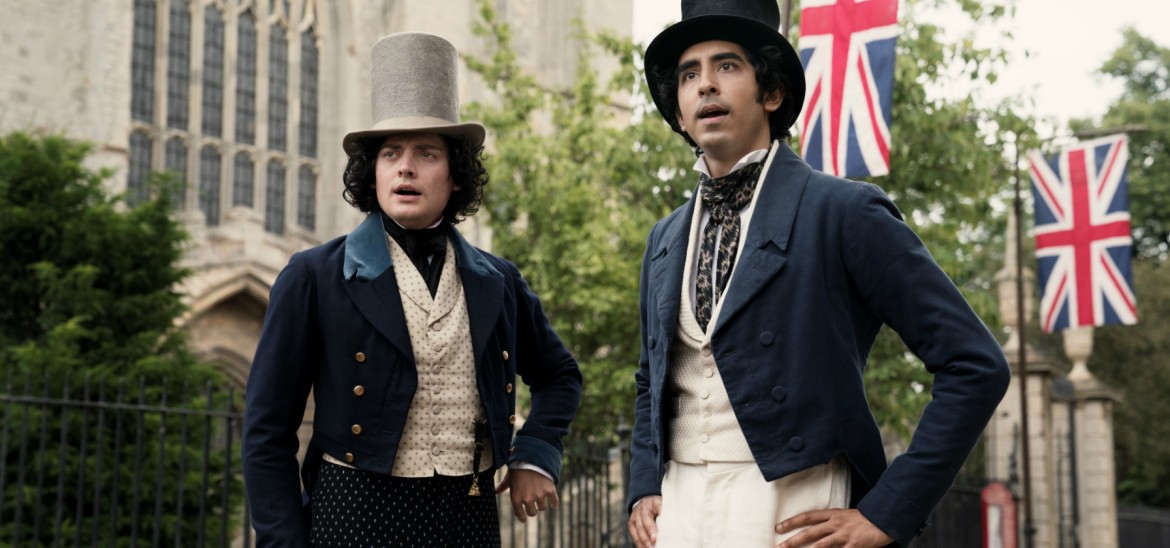Into Film Clubs
Find out everything you need to know about starting an Into Film Club.



2020 has undoubtedly been a strange and difficult year for everyone, including those in the cinema sector. Cinemas, distributors, their staff and so many others within the film industry have felt the pressure, stress and uncertainty that the pandemic and its effects have brought, but that does not tell the full story.
Though it may be tempting to dismiss 2020 as a year which lacked new releases, this is far from the whole truth. There may have been far fewer films released than normal, but there were still a great number of new titles available to watch, and once again the quality of these films was outstanding. We want to champion what was there in 2020 and we encourage you to seek out these gems which have so much to offer.
This year, more than ever, we want to celebrate cinema in all its glory and the many positive aspects it brings to our life, from the joy of discovering a new film to heated debates with friends and family afterwards; from the smell of the popcorn in the foyer to the anticipation of the trailers after taking your seat; from the friendships we develop through watching films to the special memories individual titles can evoke.
In fact, we're so convinced of the quality and quantity of titles this year that we will be presenting not just one best-of-the-year article, but four, each focusing on separate areas of the industry. Over the next few weeks we'll be looking at the incredible documentaries, world cinema, and family films that 2020 had to offer, but first up, we're looking at British films.
While there were many disappointments for the Box Office this year, not least of which was No Time to Die, the latest Bond film, being delayed not once but twice, meaning that it will now appear in 2021. However, there were still so many fantastic new and established talents which came through, both in front of and behind the camera. Challenge breeds opportunity, and some people well and truly grabbed it with both hands.
Feature film debuts this year included Rose Glass' psychological chiller Saint Maud, Jessica Swale's endearing World War Two drama Summerland, Autumn de Wilde's stylish modern interpretation of the Jane Austen novel Emma., and Eva Riley's spirited coming-of-age drama Perfect 10 - all of which also happen to be pleasingly F-Rated (female-directed) titles, suggesting an encouraging trend for opportunity within the industry. There was also Rob Savage's horror sensation Host, released in cinemas over the weekend, and which tapped into the world's sudden reliance on video calls.
Meanwhile, more established names such as Craig Roberts and Philippa Lowthorpe assembled A-list casts of British talent for Eternal Beauty and Misbehaviour, tackling the complex subjects of mental health and equality respectively.
Below, each member of Into Film's expert film curation team picks their own personal highlight of British cinema in 2020.
Despite my initial excitement for this title, I was also a little sceptical that writer-director Armando Iannucci would be able to turn his considerable talents to a Dickens adaptation that was targeted towards a younger audience as compared to his more mature previous works (such as The Death of Stalin). How wrong I was!
There have been some great ensemble casts this year - including in the other titles I've highlighted below - but none better, for my money, than The Personal History of David Copperfield. Dev Patel is in perhaps career-best form (prompting critic Mark Kermode to make a Charlie Chaplin comparison) as the eponymous, effervescent David, who yearns to find meaning in his particularly disorienting life.
The characters he meets along the way are a huge part of that bewilderment, from the not-all-there Mr. Dick (Hugh Laurie) to the deliciously slimy Uriah Heep (Ben Whishaw), while the film's colourblind casting are a landmark and hopefully watershed moment of representation within film. The blend of comedy and pathos while remaining heartfelt and true is a difficult tone to strike, but Iannucci does it magnificently.
Some films - such as Love & Friendship - are perfect tonics for people who don't think they like period dramas, and this is another delightful example.
Created in collaboration with their young cast, director Sarah Gavron and writers Theresa Ikoko and Claire Wilson demonstrated the wonderful possibilities small and authentic stories like Rocks can have on the big screen.
Set in East London, the atmospheric drama follows 16-year-old Shola - better known to her close-knit group of friends as Rocks - as she takes on the responsibility of fending for herself and her younger brother when her mother's sudden departure leaves them homeless. Balancing school and shaky friendships alongside the burden she carries, Rocks find herself in a place where asking for help may not lead to any satisfying outcome.
Friendship and the kindness of community is the light that leads Rocks through all her troubles, with the bond between Rocks and her friend Sumaya being particularly special to watch. Actors Bukky Bakray and Kosar Ali beautifully portray the loyalty, messiness and banter of having a BFF and the everyday scenes the filmmakers capture feel like moments of true connection and joy between the cast.
While touching on very real issues of poverty and child safety, the film never fails to depict the possibilities interpersonal relationships offer its young characters, perhaps showing us what we can learn about community care from young people themselves.
1917 follows the path of two young soldiers in the trenches of World War One, sent on a mission deep into enemy territory to deliver an urgent message to a commanding officer, who is about to unwittingly lead his men into a catastrophic trap.
Constructed to give the appearance of a single camera shot, and told in real time, the technical accomplishments of Sam Mendes' film are remarkable, with Roger Deakins' cinematography arguably capturing the horror of warfare more vividly than any film before it.
Technical wizardry only takes an audience so far however, and would count for little were it not for the humanity that grounds the film and lends it a profound emotional punch, centred around two exceptional performances from George Mackay and Dean-Charles Chapman (with able support from a host of familiar faces from British film).
As cinemas around the world have largely remained closed, thinking back to the visceral immersive experience of 1917 reminds us of the unique power of film and the big-screen environment. And in a year where communication seemed to become more reliant than ever on technology, learning about a time - not so long ago, really - where immense tragedy could result from the mere cutting of a telephone wire is an important and humbling lesson.
In a year where discussions around race and discrimination have played out on the world stage, it can sometimes be easy to forget that within these larger conversations exist individual and personal stories that require a thoughtfulness and complexity to understand.
Mogul Mowgli harnesses the power of cinema to tell one of these stories, a drama about a British-Pakistani rapper who must return from the US to London and put his music career on hold whilst he recuperates from a mysterious illness alongside his more traditional family. During his recovery process, he struggles to piece together his life as a displaced member of the British-Pakistani community and his own personal goals as a musician.
Actor, musician and activist Riz Ahmed and director Bassam Tariq have crafted a remarkable film which relies on surreal visuals just as much as emotional storytelling in order to engage the audience from beginning to end. When all is said and done, Mogul Mowgli is a powerful reminder of the cultural histories that shape and mould us into who we are.
Viewing 4 of 4 related items.

Get in touch with your article ideas for the News and Views section.